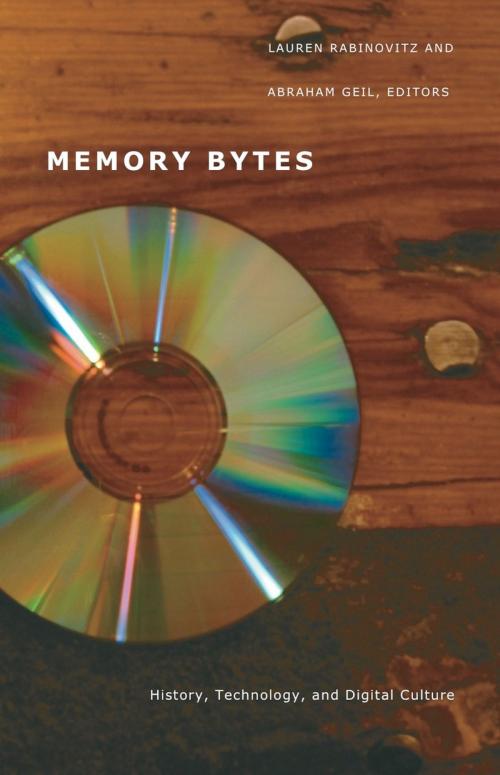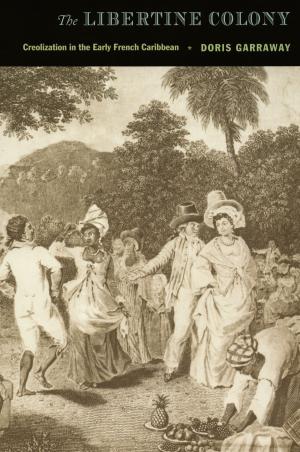Memory Bytes
History, Technology, and Digital Culture
Nonfiction, Social & Cultural Studies, Social Science| Author: | Laura Rigal, David Depew | ISBN: | 9780822385691 |
| Publisher: | Duke University Press | Publication: | January 12, 2004 |
| Imprint: | Duke University Press Books | Language: | English |
| Author: | Laura Rigal, David Depew |
| ISBN: | 9780822385691 |
| Publisher: | Duke University Press |
| Publication: | January 12, 2004 |
| Imprint: | Duke University Press Books |
| Language: | English |
Digital culture is often characterized as radically breaking with past technologies, practices, and ideologies rather than as reflecting or incorporating them. Memory Bytes seeks to counter such ahistoricism, arguing for the need to understand digital culture—and its social, political, and ethical ramifications—in historical and philosophical context. Looking at a broad range of technologies, including photography, print and digital media, heat engines, stereographs, and medical imaging, the contributors present a number of different perspectives from which to reflect on the nature of media change. While foregrounding the challenges of drawing comparisons across varied media and eras, Memory Bytes explores how technologies have been integrated into society at different moments in time.
These essays from scholars in the social sciences and humanities cover topics related to science and medicine, politics and war, mass communication, philosophy, film, photography, and art. Whether describing how the cultural and legal conflicts over player piano rolls prefigured controversies over the intellectual property status of digital technologies such as mp3 files; comparing the experiences of watching QuickTime movies to Joseph Cornell’s “boxed relic” sculptures of the 1930s and 1940s; or calling for a critical history of electricity from the Enlightenment to the present, Memory Bytes investigates the interplay of technology and culture. It relates the Information Age to larger and older political and cultural phenomena, analyzes how sensory effects have been technologically produced over time, considers how human subjectivity has been shaped by machines, and emphasizes the dependence of particular technologies on the material circumstances within which they were developed and used.
Contributors. Judith Babbitts, Scott Curtis, Ronald E. Day, David Depew, Abraham Geil, Sharon Ghamari-Tabrizi, Lisa Gitelman, N. Katherine Hayles, John Durham Peters, Lauren Rabinovitz, Laura Rigal, Vivian Sobchack, Thomas Swiss
Digital culture is often characterized as radically breaking with past technologies, practices, and ideologies rather than as reflecting or incorporating them. Memory Bytes seeks to counter such ahistoricism, arguing for the need to understand digital culture—and its social, political, and ethical ramifications—in historical and philosophical context. Looking at a broad range of technologies, including photography, print and digital media, heat engines, stereographs, and medical imaging, the contributors present a number of different perspectives from which to reflect on the nature of media change. While foregrounding the challenges of drawing comparisons across varied media and eras, Memory Bytes explores how technologies have been integrated into society at different moments in time.
These essays from scholars in the social sciences and humanities cover topics related to science and medicine, politics and war, mass communication, philosophy, film, photography, and art. Whether describing how the cultural and legal conflicts over player piano rolls prefigured controversies over the intellectual property status of digital technologies such as mp3 files; comparing the experiences of watching QuickTime movies to Joseph Cornell’s “boxed relic” sculptures of the 1930s and 1940s; or calling for a critical history of electricity from the Enlightenment to the present, Memory Bytes investigates the interplay of technology and culture. It relates the Information Age to larger and older political and cultural phenomena, analyzes how sensory effects have been technologically produced over time, considers how human subjectivity has been shaped by machines, and emphasizes the dependence of particular technologies on the material circumstances within which they were developed and used.
Contributors. Judith Babbitts, Scott Curtis, Ronald E. Day, David Depew, Abraham Geil, Sharon Ghamari-Tabrizi, Lisa Gitelman, N. Katherine Hayles, John Durham Peters, Lauren Rabinovitz, Laura Rigal, Vivian Sobchack, Thomas Swiss















